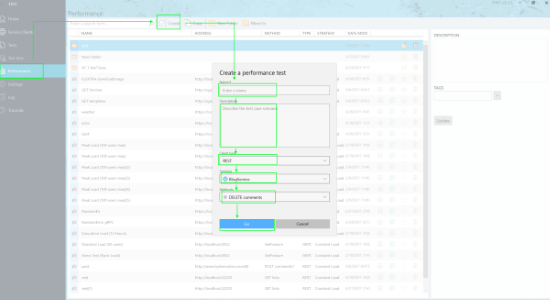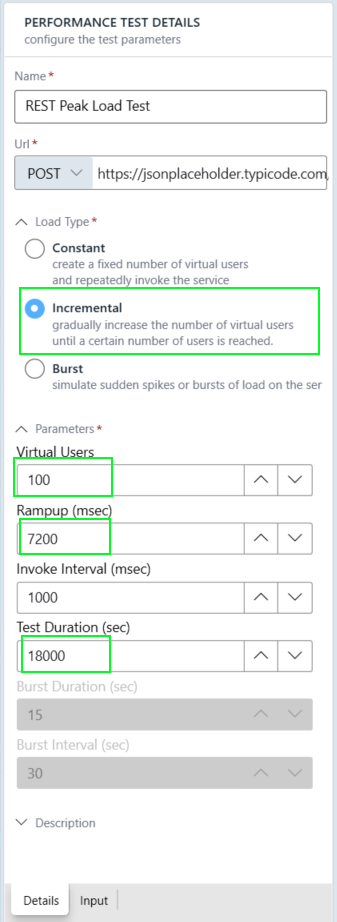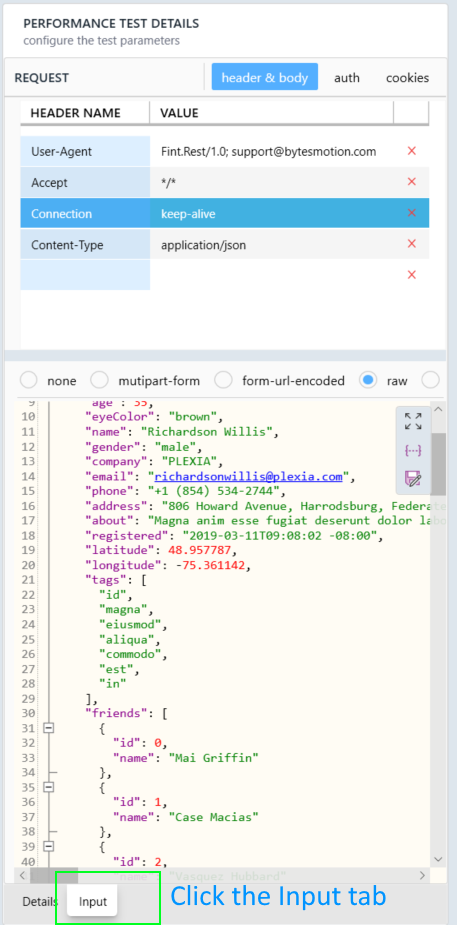In this tutorial lets assume that a rest service's performance needs to be measured against some target goal. For example, in order to ensure that the service performs adequately, the (fictitious) product managers have defined the following performance requirements
- The service on average will have 50 clients using it and each client interacts with the service once every second
- The minimum response time of a method in the service is 300 msec. The maximum response time is 500 msec
- The service will have a peak workload from 10 AM - 1 PM. A maximum of 100 clients is connected to the service at this time.
- The service will be up 24 hours a day.
- Every 2 hours, the clients will connect the route guide service
In order to test this requirement.
The service will have a peak workload from 10 AM - 1 PM. A maximum of 100 clients is connected to the service at this time.
we'll create a Peak Load Test Scenario. Please see Load Test Scenarios for a description of the various test scenarios
- Create the Performance Test. In the "Client Type" dropdown list, select REST.
 (Click to enlarge)
(Click to enlarge)
- Configure the test with 100 Virtual users and Invoke Interval of 1 sec (or 1000 msec). If the REST Service is called by client applications operated by people, then we can assume that these applications will start connecting to the service starting around 8 AM (opening hours of the office). That means that within a span of 2 hours (8 - 10 AM), the number of clients connected to the service will gradually increase from 0 - 100.
The key to modeling the above scenario in FINT is to the use the Incremental Load Type (see screenshot below). In order to gradually increase to 100 users within a span of 2 hours, we need to create a user every 72 seconds. The test period is from 8 AM - 1PM (5 hours or 18,000 seconds)

- Configure the request message

- Now you're ready to run the test! Click the run button (
 )
)